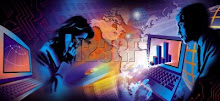The Committee was first set up in 2008, supported by the principal bodies and agencies in UK post-compulsory education, with the remit of conducting an independent inquiry into the strategic and policy implications for higher education of the experience and expectations of learners in light of their increasing use of the newest technologies. Technologies considered under this remit are Web 2.0 or Social Web technologies, technologies that enable communication, collaboration, participation and sharing.
Some initial points relevant to this context are:
Ongoing drivers for change: Tradition:
"Students are looking for traditional approaches, notably personal contact, in a modern setting, ie web-supported. The bridge between web 2.0 in social use and in learning is as yet only dimly perceived by students, and only a little more clearly by staff. The fact that it is perceived, however, is likely to act as a spur to its construction" (p. 8)
It is notable that personal contact is still expected/considered an essential part of learning. Access to the experts and their knowledge seems to be the driver here. Which models of education are expected/preferred is less clear. Does personal contact mean sitting in a lecture theatre and recording notes based on a lecturer's presentation, or does personal contact mean discussion, debate, sharing of information as facilitated or guided by a lecturer?
In this context, it is not only the use of such technology for teaching and learning which both staff and students need to feel comfortable with but also, for students in particular, it's the shift from a teaching or 'deposit' model of education to a learning based model, which they often encounter during their HE education. There have been recent student demonstrations in Manchester protesting against a reduction in staff contact time in favour of more 'active based learning' so tensions in this area still exist and are bubbling to the surface more and more in a fee-paying, customer driven academic environment.
With two evolutions taking place in higher education, both intersect at regular intervals and are indeed fundamentally interlinked in a new learning 2.0 landscape. It is evident that:
- social and workplace personal or group contact is both experienced and achieved remotely and that education will need to scaffold the divide from new leaner to employment similarly
- more learner centred approaches to education will be adopted in HE
and so learning that builds in 'remote personal contact' to develop tutor-student, peer-peer, student - reflection based discussion, dialogue or conversation may gain credence, acceptance and momentum as both staff and students become more comfortable and confident in using Web 2.0 technologies for learning in this way.
Having read through a few press releases - like this one and this one. I thought I would join the conversation, as instructed there, by tagging this blog post with #clex09. The use of blog/twitter/comment tagging to join conversations would make another interesting blog post for this blog but for now.....
Must read the rest of this report......
References:
Committee of Enquiry into Changing Learner Experience, 2009. Higher Education in a Web 2.0 world. [online] Available at: http://www.clex.org.uk/ourfindings.php. [Accessed 18th May 2009]
JISC, 2008. Effective use of social software by further and higher education in the UK. [online] Available at: http://kn.open.ac.uk/public/workspace.cfm?wpid=8655. [Accessed 18th May 2009]
JISC, 2009. Podcast/Press Release: HE in a 'Web 2.0 World' report. [online] Available at: http://www.jisc.ac.uk/news/stories/2009/05/podcast80heinaweb20world.aspx. [Accessed 18th May 2009]





No comments:
Post a Comment
Grab a coffee, pull up a chair and come and join the conversation